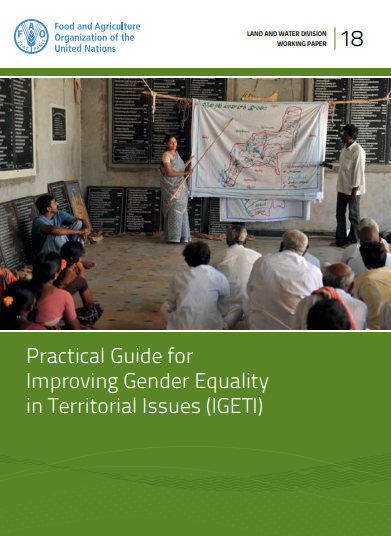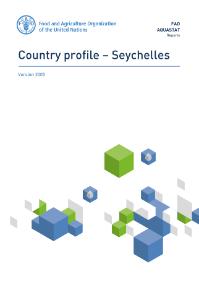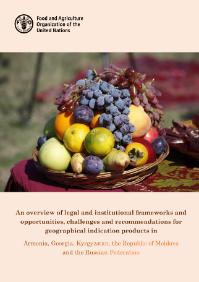Focal point
Location
The Food and Agriculture Organization of the United Nations leads international efforts to defeat hunger. Serving both developed and developing countries, FAO acts as a neutral forum where all nations meet as equals to negotiate agreements and debate policy. FAO is also a source of knowledge and information. We help developing countries and countries in transition modernize and improve agriculture, forestry and fisheries practices and ensure good nutrition for all. Since our founding in 1945, we have focused special attention on developing rural areas, home to 70 percent of the world's poor and hungry people.
Members:
Resources
Displaying 236 - 240 of 5073Renforcer les politiques sectorielles pour améliorer la sécurité alimentaire et la nutrition : note n°7 sur les régimes fonciers
Practical Guide for Improving Gender Equality in Territorial Issues (IGETI)
This guide presents a people-centred gender approach to increase and improve the provision of goods and services from agriculture, forestry and fisheries in a sustainable manner while reducing rural poverty. It first introduces the proposed approach for improving gender equality in territorial issues, with specific guidance for each phase of the gender-response planning process. Then, it presents some available participatory tools to support planning of gender-responsive territorial development.
Country profile – Seychelles
This country profile describes the state of the water resources and water use, as well as the state of agricultural water management in Seychelles. The aim of this report is to describe the particularities of the country and the problems met in the development of the water resources, and irrigation in particular. Irrigation trends, existing policies and legislation to water use in agriculture, possible treaties and agreements between countries as well as prospects for water management in agriculture are presented, as described in literature.
Transboundary River Basin Overview – La Plata
This river basin overview describes the state of the water resources and water use, as well as the state of agricultural water management in the La Plata basin. The aim of this report is to describe the particularities of this transboundary river basin and the problems met in the development of the water resources, and irrigation in particular. Irrigation trends, existing policies and legislation to water use in agriculture, possible treaties and agreements between countries as well as prospects for water management in agriculture are presented, as described in literature.
An overview of legal and institutional frameworks and opportunities, challenges and recommendations for geographical indication products in Armenia, Georgia, Kyrgyzstan, the Republic of Moldova and the Russian Federation
Geographical indication (GI) schemes can play a special role in promoting sustainable rural development, improving farm income and opening new export potential. Natural factors such as soil, climate and plant varieties play a major role in producing a unique product. Usually, GIs comprise knowledge and skills passed on from generation to generation, helping to protect local heritage. This report is a synthesis of the five national reviews of the legal and institutional frameworks in Armenia, Georgia, Kyrgyzstan, the Republic of Moldova, and the Russian Federation.











